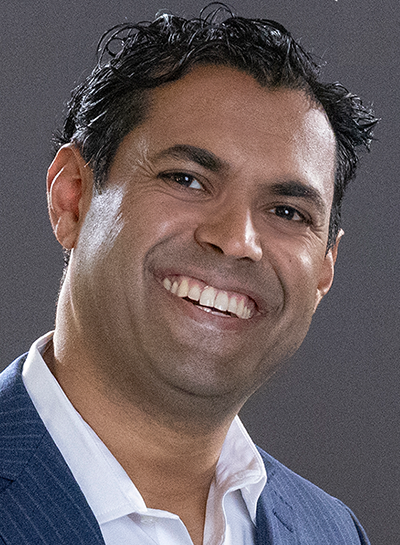Jewish Heritage Museum: May and June Programming Postponed or Cancelled
April 17, 2020
Angelina Dowd passes at 91
April 17, 2020By Michele S. Byers, Executive Director, New Jersey Conservation Foundation
Fifty years ago, people took to streets and campuses across America to sound the alarm on pollution and demand stronger environmental protections.
The occasion was the first Earth Day on April 22, 1970, an idea conceived by U.S. Senator Gaylord Nelson after witnessing the ecological damage caused by a massive oil spill in California the year before.
Across the country, an estimated 20 million people celebrated the inaugural Earth Day by taking part in cleanups, teach-ins, lectures and peaceful demonstrations. In New Jersey, the state officially launched the Department of Environmental Protection.
The journalist Peter Benchley (who later went on to write Jaws) reported at the time, “Earth Day has accomplished what no individual or organization has been able to do in years – the unification of large and diverse segments of the American populace in common purpose.”
Over the last 50 years, Earth Day has become a spring ritual, a time to teach children about the environment, plant trees and gardens, pick up litter in parks and on beaches, renew calls for environmental protection, and look for ways to live more sustainably.
This year, Earth Day will be a subdued occasion due to the coronavirus pandemic. Schools are closed and organized cleanups and public celebrations – like the one planned in Trenton for the Department of Environmental Protection’s 50th anniversary – have been postponed.
But it’s worth taking a moment to remember Earth Day’s roots as a common cause uniting all people – young and old, conservative and liberal, urban and rural. We all need clean air, clean water and lands capable of supporting life.
Fifty years after the first Earth Day, however, protecting the environment is anything but a nonpartisan cause. In Washington, the push for environmental rollbacks has been unrelenting, even as the nation’s attention has been focused on battling COVID-19.
Proposed rollbacks include weakening automobile fuel efficiency standards, loosening controls on toxic ash from coal plants, relaxing restrictions on mercury emissions, eliminating some protections for migratory birds, and weakening the consideration of climate change in environmental reviews for most infrastructure projects.
All told, these rollbacks could significantly increase greenhouse gas emissions and lead to thousands of more deaths from poor air quality every year, according to a report by New York University Law School’s State Energy and Environmental Impact Center. Given the threat to our health from COVID-19, we can ill afford to roll back regulations that protect the public from the impacts of pollution.
Fortunately, New Jersey has a long history of bipartisan efforts to protect our air, water, land and wildlife. Governor Murphy and his administration have firmly demonstrated their commitment to protecting our environment through enforcement actions against polluters, tackling climate change and charting the course toward 100 percent clean energy by 2050.
And just last week, the New Jersey Department of Environment Protection finalized stronger protections for 600 miles of rivers and streams throughout the state. Many of these new “Category 1” streams are part of river systems that supply drinking water to millions of residents and support a diversity of wildlife.
Amid the human tragedy caused by the coronavirus, one side effect of shutdowns and stay-at-home orders has been a cleaner environment. Due to fewer vehicles on the road, decreased air traffic and industries operating at lower capacity, air quality around the world has improved. Water quality has also gotten better.
“The coronavirus is obviously not a good thing, and this catastrophe is not the way any reasonable person would plan on having the world lower its carbon footprint,” said Robert Routh, an attorney with the Clean Air Council, in an interview with PBS station WHYY. “But if anything, it should demonstrate that climate change is driven by human activity and our actions and behaviors, on a wide scale, affect emissions.”
Why not put the right plans and policies in place to transition our electric, transportation, building and industrial sectors away from fossil fuels to clean sources of energy?, This would rapidly and significantly reduce the emissions that harm our health and climate. Investing in a clean energy economy would also create thousands of good, local jobs and help put people back to work.
Why not focus on banning harmful chemicals worldwide, reducing all but essential plastics, conserving energy and raw materials every day, restoring forests on a massive scale, and restoring soils using non-chemical agriculture?
Why not take action now on climate change and climate mitigation to decrease impacts on populations most vulnerable to sea level rise, drought and famine?
The COVID-19 crisis has demonstrated the critical importance of taking proactive and comprehensive measures to protect our health and our families. It is critical to protect the lands and waters that are essential to our health and quality of life, and to maintain and strengthen the laws and regulations that protect us from the harmful effects of air and water pollution.
The original idea behind the first Earth Day 50 years ago still rings true today. Citizens can take action today and make sure that elected officials at all levels hear this call. For our health and our planet’s health, let’s make every day Earth Day!
To learn more about Earth Day and its history, go to the Earth Day Network website at https://www.earthday.org/earth-day-2020/.
To read the report by New York University Law School’s State Energy and Environmental Impact Center, go to https://www.law.nyu.edu/sites/default/files/climate-and-health-showdown-in-the-courts.pdf.
And to learn more about preserving New Jersey’s land and natural resources, visit the New Jersey Conservation Foundation website at www.njconservation.org or contact me at info@njconservation.org.




